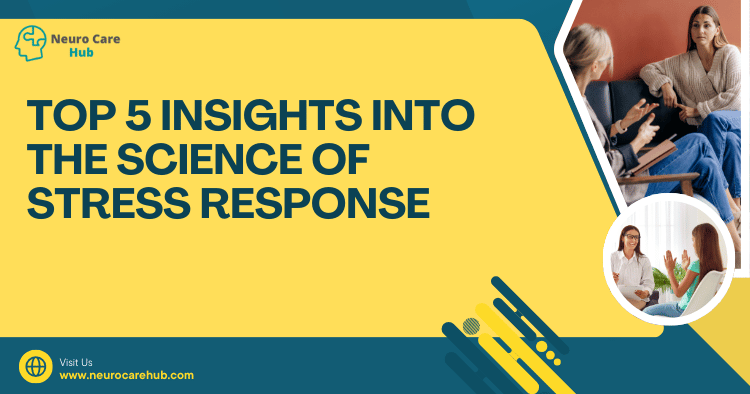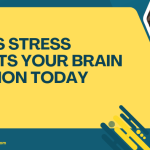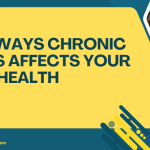Table of Contents
- What is Stress?
- The Biological Mechanism Behind Stress
- Types of Stress Responses
- The Impact of Chronic Stress
- Strategies to Manage Stress Effectively
What is Stress?
Stress is a natural reaction of the body to perceived threats or challenges, often referred to as a “fight or flight” response. When you encounter a stressful situation, your body undergoes various physiological changes, gearing up to either confront or flee from the threat. While short bursts of stress can be beneficial, helping you stay alert and focused, prolonged stress can lead to significant health issues.
“Stress is not necessarily a bad thing; it’s how we respond to it that matters.”
FAQs:
- What are the common causes of stress?
Common stressors include work pressure, financial issues, personal relationships, and major life changes. - Is all stress bad?
Not necessarily! Short-term stress can enhance performance and motivation, while chronic stress is detrimental to health.
For more details on stress and its effects, consider reading an article from the American Psychological Association.
The Biological Mechanism Behind Stress
When faced with a stressor, your brain activates the hypothalamic-pituitary-adrenal (HPA) axis, triggering the release of stress hormones, primarily cortisol and adrenaline. This cascade of hormonal reactions prepares your body for immediate action. Here’s a simplified overview of the biological process:
- Perception of Stress: The brain perceives a threat.
- Activation of HPA Axis: The hypothalamus signals the pituitary gland.
- Hormone Release: The pituitary gland releases ACTH (adrenocorticotropic hormone), prompting the adrenal glands to produce cortisol and adrenaline.
- Physiological Changes: Increased heart rate, blood pressure, and energy supply occur, enhancing your ability to react.
“The body is designed to respond to stress, but chronic activation can lead to serious health issues.”
Visual Element: Stress Response Cycle
| Stage | Description |
|---|---|
| Perception | Brain identifies a stressor. |
| Hypothalamus Signal | Hypothalamus activates the HPA axis. |
| Hormone Release | ACTH triggers cortisol and adrenaline release. |
| Body Response | Physiological changes prepare for action. |
This intricate system illustrates how your body is finely tuned to respond to challenges, ensuring you can react swiftly in critical situations.
Types of Stress Responses
Stress responses can be classified into three primary types: acute stress, episodic acute stress, and chronic stress.
- Acute Stress: This type occurs in response to an immediate threat and is short-lived. Think of the adrenaline rush you feel before a big presentation or competing in a sports event.
- Episodic Acute Stress: This occurs when someone frequently experiences acute stress, often due to taking on too many responsibilities or facing regular challenges. It can lead to irritability and anxiety.
- Chronic Stress: This is a prolonged response to stressors that persist over time, such as ongoing financial difficulties or a toxic work environment. Chronic stress can have severe health implications, including heart disease and depression.
“Recognizing the type of stress you experience is the first step in managing it effectively.”
FAQs:
- How can I identify the type of stress I’m experiencing?
Reflect on the duration, frequency, and triggers of your stress. Keeping a stress journal can be beneficial. - Can stress manifest physically?
Yes! Symptoms can include headaches, digestive issues, and fatigue, among others.
For a deeper dive into the types of stress, check out this resource from the National Institute of Mental Health.
The Impact of Chronic Stress
Chronic stress can have a cascading effect on both mental and physical health. Here are some of the significant consequences:
Mental Health Impacts:
- Anxiety Disorders: Chronic stress can heighten feelings of anxiety and lead to disorders.
- Depression: Prolonged stress often contributes to depressive symptoms, making it difficult to cope daily.
Physical Health Impacts:
- Cardiovascular Issues: Stress can lead to elevated blood pressure and increase the risk of heart disease.
- Immune System Suppression: Chronic stress can weaken the immune system, making you more susceptible to illnesses.
“Awareness of chronic stress’s effects can empower you to take proactive steps toward better health.”
Visual Element: Health Effects of Chronic Stress
| Health Impact | Description |
|---|---|
| Mental Health Disorders | Increased risk of anxiety and depression. |
| Cardiovascular Problems | Higher blood pressure and heart disease risk. |
| Weakened Immune Response | Greater susceptibility to infections. |
Understanding the long-term effects of chronic stress can motivate individuals to prioritize stress management techniques and seek help when necessary.
Strategies to Manage Stress Effectively
Fortunately, there are numerous strategies to manage stress effectively:
- Mindfulness and Meditation: Practicing mindfulness helps you stay present and reduce anxiety. Apps like Headspace or Calm can guide you through meditation exercises. Additionally, consider exploring the top 5 ways to integrate neuro care into your wellness routine for holistic approaches to managing stress.
- Regular Physical Activity: Exercise is a potent stress reliever. Aim for at least 30 minutes of moderate activity most days of the week. It can also align with top 5 exercises to boost your nervous system health, providing dual benefits.
- Healthy Lifestyle Choices: Eating a balanced diet, getting enough sleep, and avoiding excessive caffeine can significantly impact your stress levels. For insights into enhancing brain health through diet, check out top 5 foods to enhance your brain health naturally.
- Social Support: Talking to friends, family, or a therapist can provide emotional relief and practical solutions to stressors. Research shows that social interaction can significantly boost mental health, as discussed in top 5 ways social interaction boosts brain health.
- Time Management: Prioritizing tasks and setting realistic goals can alleviate the feeling of being overwhelmed. For more tips on managing daily life with neurological disorders, see top 5 strategies for balancing work and neurological health.
“Implementing even a few stress management techniques can lead to significant improvements in your overall well-being.”
FAQs:
- How quickly can I expect to see results from stress management techniques?
Many individuals experience immediate relief from practices like deep breathing and mindfulness, while others may find long-term benefits with consistent effort. - When should I seek professional help for stress?
If you find that stress interferes with your daily life or mental health, consider reaching out to a mental health professional.
For more resources on stress management, visit the Mayo Clinic.
In conclusion, understanding the science of stress response equips you with the knowledge to recognize, address, and manage stress effectively. By incorporating healthy habits and seeking support when needed, you can navigate the challenges of life with greater ease. Remember, it’s not just about surviving stress; it’s about thriving despite it!






